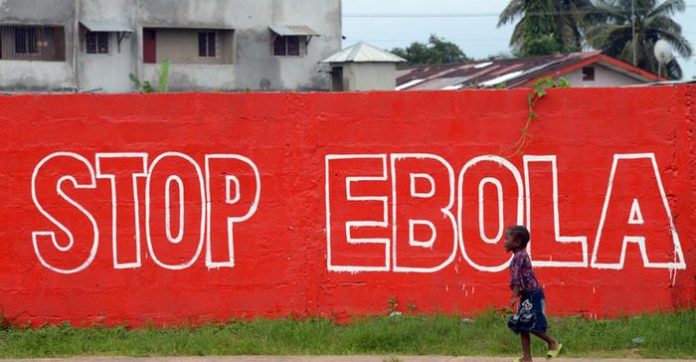
Although Ebola has largely faded from the headlines in the U.S., the virus hasn’t stopped devastating those countries at the epicenter of the outbreak. The latest figures from the World Health Organization show that more than 21,000 people have been infected with Ebola and nearly 8,400 have died from it since the outbreak was confirmed last March — but the effects of Ebola extend far beyond those infected with the deadly virus.
Job loss and food insecurity are just two of the far-reaching and persistent socioeconomic effects of Ebola in Liberia and Sierra Leone, according to a new report from the World Bank. It warns that Ebola is ruining the economies of Liberia and Sierra Leone and may cause widespread food shortages as farmers struggle to bring in harvests.
“The Ebola virus itself must be eradicated- this is the number one priority,” Ana Revenga, Senior Director for Poverty at the World Bank Group, said in a statement. “But its socio-economic side effects put the current and future prosperity of households in Liberia and Sierra Leone at high risk. We must pay careful attention to those who are most vulnerable to both health and economic shocks, and ensure that they are supported throughout and after the crisis.”
High household unemployment, food insecurity
The report revealed that nearly half of Liberian breadwinners are out of work and 60 percent of women are jobless — and that’s in spite of construction and health jobs created by the crisis. In Sierra Leone, the World Bank said, nearly 180,000 people have lost their jobs since the summer. For non-farming household enterprises, revenue’s gone down by 40 percent on average.
“These job losses have been caused mainly by the indirect effects of necessary preventive measures to restrict disease spread and by the general disruption to the economy caused by the outbreak,” the World Bank said. But now, even areas where Ebola is not currently spreading are suffering from its effects.
For instance, the report found that 80 percent of families growing food had smaller harvests in the past growing season than the year before, mostly because they were unable to find workers to help with the farming. Furthermore, quarantines and restrictions on travel have made it difficult for farmers to sell any crops they were able to harvest.
The survey also revealed that two-thirds of Liberian households were not able to buy enough food, while in Sierra Leone, food insecurity remains “high” (further rounds of data collection are needed to determine a reliable estimate, the report said).
Widespread, long-term effects in West Africa
The most worrisome finding, according to the World Bank, is that many households in Liberia “have undertaken various mechanisms to cope with Ebola’s socioeconomic effects”, most of which have long-term implications for the economic and social prosperity of individuals and the region as a whole.
“From a poverty perspective, we are particularly concerned about households being forced into coping strategies that may harm their long term prospects to improve welfare, and now we can follow this in almost real time,” said Kristen Himelein, the World Bank Group”s poverty economist for Liberia and Sierra Leone.
The report describes some of these worrisome findings:
Eighty percent of those surveyed [in Liberia] had either sold assets, sold or slaughtered livestock, borrowed money, sent their children to live elsewhere, spent savings, or delayed investments since the start of the Ebola crisis — all of which can have negative long-term effects on their welfare. Those in the south-easternmost counties, historically the poorest region of the country, were the most likely to undertake these coping strategies, even though they are among the least directly affected by [Ebola].
Beyond the impact on households, the report also found that Ebola has negatively affected the wider economy:
- Construction at a major hydroelectric plant in Liberia is on hold, as is a new $10 million palm-oil mill.
- Coffee production in Guinea has fallen by half and cocoa by one-third.
- Inflation in Sierra Leone is expected to rise to 10 percent.
This latest report adds to a previous World Bank analysis showing that the two-year regional financial impact of Ebola could reach as high as $32.6 billion by the end of 2015, dealing a potentially catastrophic blow to already fragile states.
Liberia, Sierra Leone and Guinea were barely emerging from decades of civil war and political uncertainty and were already among the poorest countries in the world. Now, with Ebola ravaging the region, the epidemic risks unleashing an economic catastrophe that Liberian President Ellen Johnson Sirleaf has warned will leave a “lost generation” of young West Africans.
Experts predict it will take at least another year to bring the outbreak under control; as this report suggests, the social and economic effects are likely to persist for much longer.
